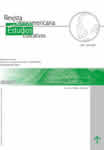Authors
Abstract
This article sustains the manner in which action research arrives in Colombia coming from Europe, United States and Australia, among other countries, and impacts the initiatives of curricular reforms. As a growing international movement, action research involves teachers as promoters of their own professional development from their work positions. After World War II action research has been present in all the curricular reforms with the intention of giving scientific features to teaching, learning, formative processes, as well as to the development of educational institutions. A way to understand the relationship between action research and curriculum is to recognize that all over the world and during humanity’s successive historical moments, curriculum has needed reforms in order to give answers to the dissatisfaction related to the poor achievements of schools. Modern societies always expect more qualified institutions. Historically, curricular theories and practices have required the expert commitment of the actors so that they can be researchers of their own action, as well as recovering the meaning of what they do. Curricular changes and professional development of teachers are directly related to the improvement of education and with action research. Educators act autonomously in order to propose, experience, make decisions and promote curricular changes with enthusiasm and satisfaction. Grounded in interpretative social sciences, action research in curriculums allows educators to consciously renegotiate the rules and to reflexively transform social interactions. Curriculum quality is achieved through action research and educators are better-positioned to carry out changes and innovations in scenarios that offer continuous improvement.
References
Ávila, R. (2003). “Aluna: lecciones de una experiencia de formación de maestros para la investigación”. En: La investigación-acción pedagógica;experiencias y lecciones. Bogotá: Antropos.
Carr, W. y Kemmis, S. (1988). Teoría crítica de la enseñanza. Barcelona: Martínez Roca.
Colás, M. P. y Buendía, L. (1998). Investigación Educativa, 3a. ed. Sevilla: Alfar.
Collier, J. (1945). United States indian administration as a laboratory of ethnic relations, Social Research.
Corey, S. (1953). Action Research to improve School practices. Columbia University, New York: Teachers College Bureau of Publications.
Dewey, J. (1960). Las escuelas de mañana. Buenos Aires: Losada.
Elliott, J. (1994). La investigación-acción en educación. Madrid: Morata.
Forero, F. (2002). Transformación de la formación del docente universitario. Congreso Nacional de Investigación–Acción Educativa. Medellín: Asociación de Colegios Privados de Antioquia-ADECOPRIA.
Freire, P. (1969). La educación como práctica de la libertad. Montevideo: Tierra Nueva.
Grupo de investigación INAPE (2003), “Investigación-Acción pedagógica –INAPE: una estrategia de formación docente en la Universidad de la Amazonía”. En: Àvila, R. (2003). “Aluna: lecciones de una experiencia de formación de maestros para la investigación”. En: La investigación-acción pedagógica;experiencias y lecciones. Bogotá: Antropos.
Habermas, J. (1978). “Teoría analítica de la ciencia y la dialéctica.” En: Popper, K. La Lógica de las Ciencias sociales. México: Grijalbo.
K. S. & McTaggart, R. (1988). The Action Research Planner, 3rd edition, (1992) Geelong, Victoria, Australia: Deakin University Press.
Lewin, K. (1946). Action Research and Minority Problems. Journal of Social Issues.
McKernan, J. (1999). Investigación-acción y curriculum. Madrid: Morata.
Ministerio de Educación Nacional (1994). Ley 115 de 1994. Reforma Educativa, Bogotá.
Quintero, J. (2001). Investigación-Acción-Reflexión para el mejoramiento de la teoría y práctica pedagógica. Tesis Doctoral. Medellín: Facultad de Educación, Universidad de Antioquia.
Ramírez, M. E. (2002). Actividades de recuperación, una alternativa para el aprendizaje. Experiencia presentada en el Congreso de ADECORIA, Colegio Jesús María del Estadio. Medellín.
Stenhouse, L. (1981) La investigación como base de la enseñanza. Madrid, Morata.
Taba, H. (1980). Elaboración del Currículo. 5ª ed. Buenos Aires: Troquel.
Tyler, R. (1979). Principios Básicos del Currículo. Buenos Aires: Troquel.

 PDF (Español)
PDF (Español)
 FLIP
FLIP



















